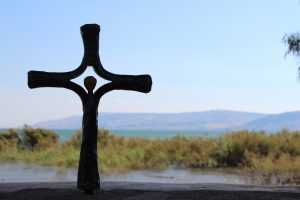
20 Christian Pilgrimage Sites in Israel: The Guidebook
Israel, often called the birthplace of Christianity, is a land steeped in history, holding deep significance for believers. Christian pilgrimage sites abound in this small
Israel’s rich religious history and diverse cultural landscape make it a remarkable destination for exploring holy places. These holy places in Israel stand as a testament to the deep significance that religion holds in the region. For tourists, visiting these holy places is a gateway to understanding the profound connections between faith, history, and the land. Exploring these holy places in Israel isn’t just a journey through time; it’s a path toward forging a deeper understanding of the spiritual tapestry that has woven the fabric of this remarkable land.
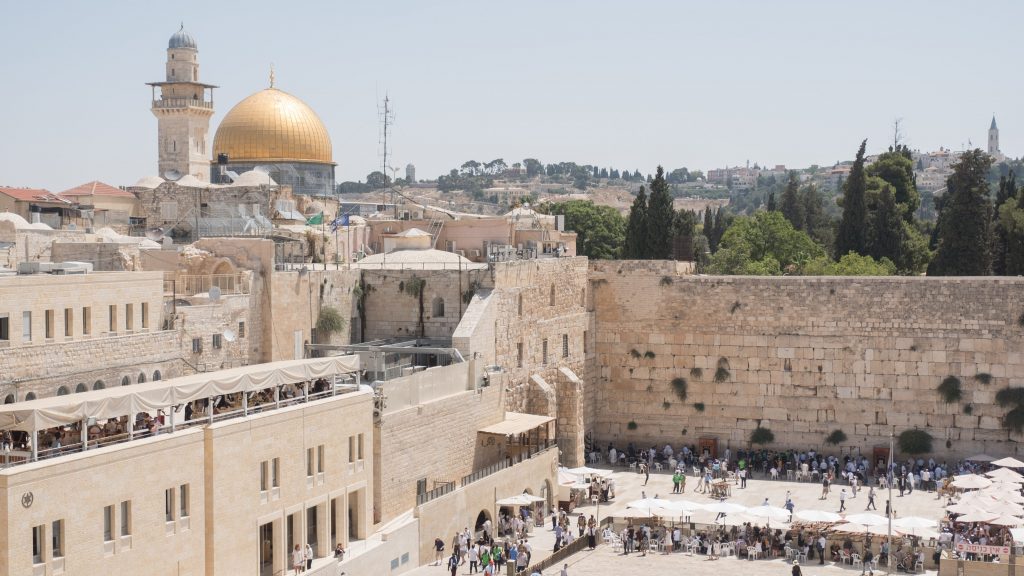
One of the most revered holy places in Israel is the Western Wall, also known as the Wailing Wall. Located in Jerusalem’s Old City, it holds immense significance for Judaism. The Wall’s history dates back to the Second Temple period, standing as a remnant of that ancient structure. For Jews, the Kotel is a place of holiness and prayer, symbolizing their connection to God. Pilgrims and visitors gather here, placing written prayers within the Wall’s cracks, seeking a spiritual connection. This ancient site in Jerusalem remains a poignant testament to the enduring faith and devotion that define Israel’s spiritual landscape.
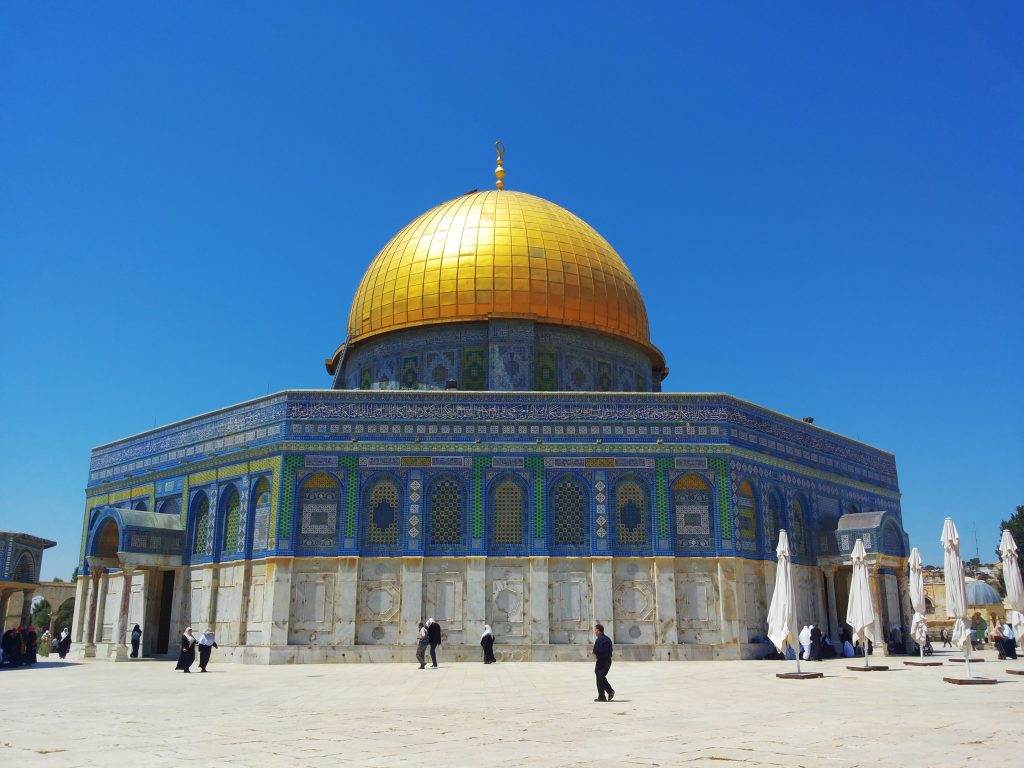
Found within Jerusalem’s Temple Mount complex, Al-Aqsa Mosque stands as one of the most holy places in Israel for Muslims. Its significance is profound, as it’s believed to be the site of Prophet Muhammad’s Night Journey. The mosque’s golden dome graces the skyline, symbolizing this spiritual importance. Tourists visiting should be mindful of certain restrictions, including non-Muslims not entering the main prayer hall during prayer times. Respectful attire and behavior are essential to honor this place of worship. By recognizing its sanctity and history, visitors can appreciate the vital role Al-Aqsa Mosque plays in Islamic faith.
Nestled in Jerusalem, the Church of the Holy Sepulchre holds immense importance for Christians visiting holy places in Israel. This church marks the very spot where Jesus is believed to have been crucified, buried, and resurrected. For believers, it’s a journey to the heart of their faith. Notably, this revered site is shared by different Christian denominations, each contributing to its care. Inside its ancient walls, pilgrims find solace and connection, witnessing a place where their spiritual narrative came to life. The Church of the Holy Sepulchre stands as an enduring testament to Christianity’s historical and spiritual significance.
The Mount of Olives stands as a unifying presence among the holy places in Israel, resonating with significance for Jews, Christians, and Muslims alike. Its connection to biblical events makes it a site of pilgrimage and reflection. Numerous sacred spots rest upon its slopes, including the Church of All Nations and the Garden of Gethsemane. Beyond its spiritual significance, the Mount of Olives offers breathtaking panoramic views of Jerusalem, an awe-inspiring sight that encapsulates the city’s historical and spiritual tapestry. This iconic mount serves as a reminder of the shared reverence for the land’s deep-rooted history.
Located in Nazareth, the Basilica of the Annunciation is among the revered holy places in Israel. It marks the spot where, according to tradition, the angel Gabriel appeared to Mary. Christians hold this event as pivotal, and the basilica stands as a symbol of that divine news. Pilgrims journey here to connect with this profound moment and appreciate the intricate architecture. As a pilgrimage site and architectural marvel, the Basilica of the Annunciation is a testament to the faith and history that intertwine throughout the Holy Land.
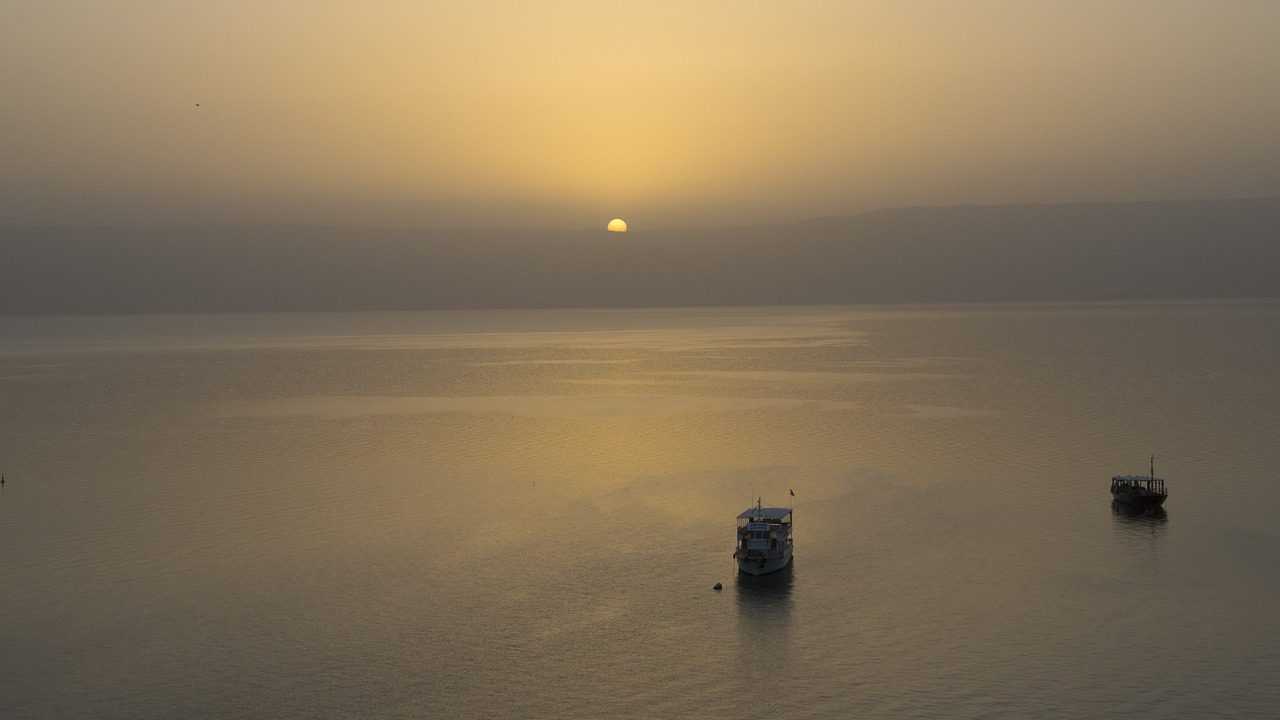
Nestled in Israel’s landscape, the Sea of Galilee holds profound importance for both Jews and Christians among the holy places in Israel. Its serene shores witnessed many of Jesus’ teachings and miracles, anchoring it as a core biblical setting. Surrounded by picturesque views, the Sea of Galilee’s historical context lends depth to its spiritual significance. This tranquil haven encapsulates the essence of the Holy Land’s intertwining faith and natural beauty, making it a must-visit site for those seeking a deeper connection to its spiritual tapestry.
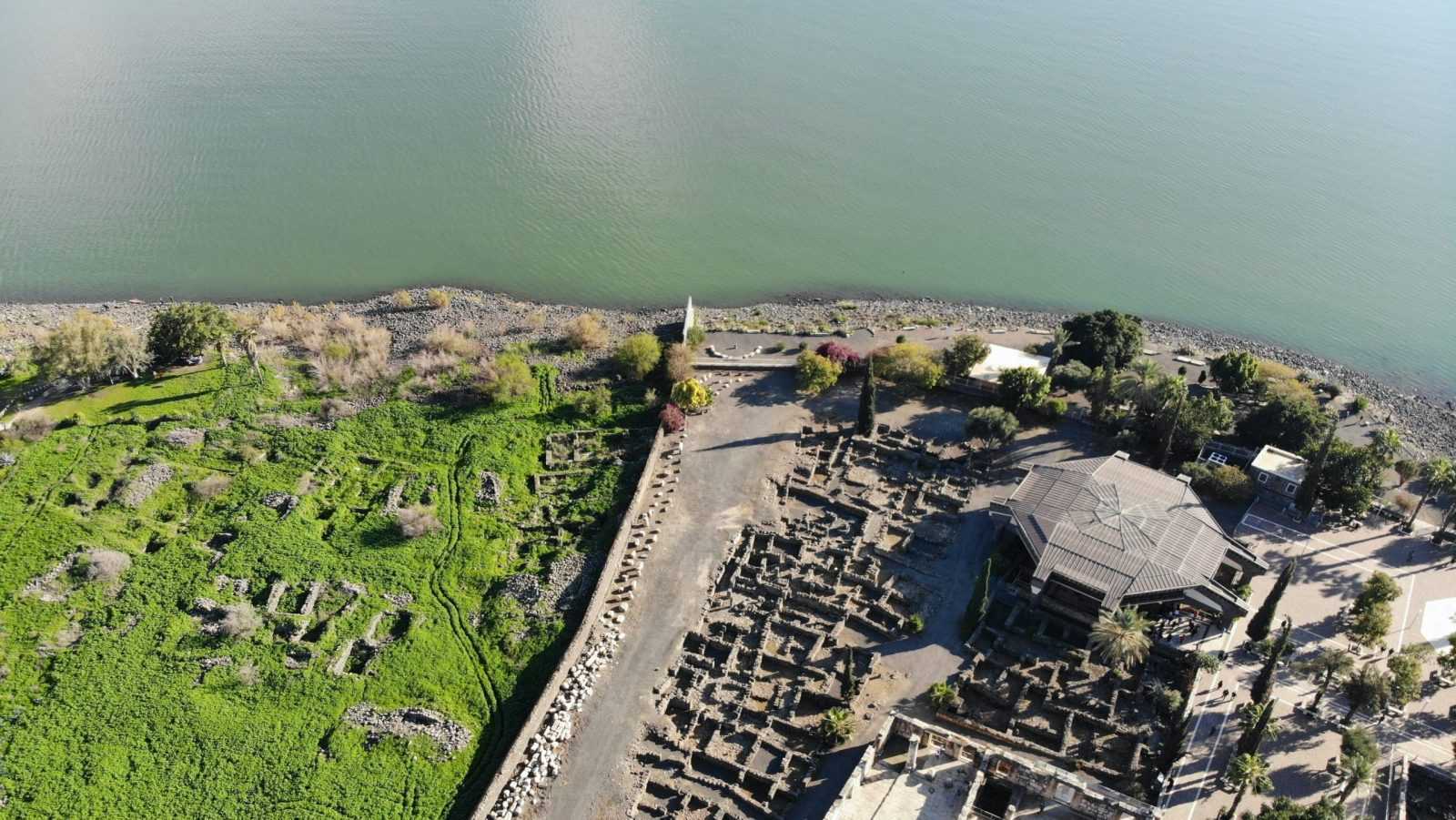
In the collection of holy places in Israel, Capernaum holds a special place. This ancient fishing village is indelibly linked to Jesus, serving as a stage for miracles and teachings. Jesus’ presence here is palpable; it’s where he healed the sick and delivered teachings that shaped Christianity. Archaeologically, Capernaum’s significance is clear, offering insights into daily life during biblical times. Visitors can walk in the footsteps of Jesus, bridging the gap between history and faith, and gaining a unique perspective on the spiritual narrative that unfolded in this timeless village.
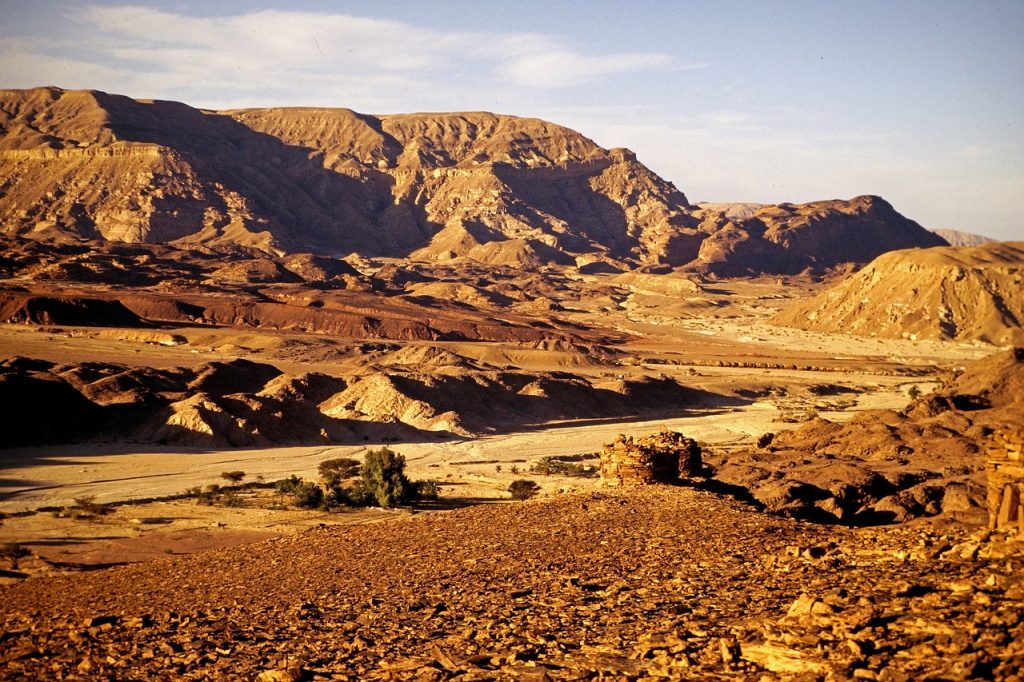
Among the significant holy places in Israel, Mount Sinai, located in the Sinai Peninsula, stands as a cornerstone of Jewish heritage. Its religious importance is anchored in Judaism. This revered mountain is where, according to tradition, Moses received the Ten Commandments from God. This pivotal moment marked a covenant between God and the Jewish people, shaping their faith and moral code. Mount Sinai’s rugged grandeur echoes the profound spiritual connection that Jews hold with this sacred site, making it a destination of deep reverence and reflection.
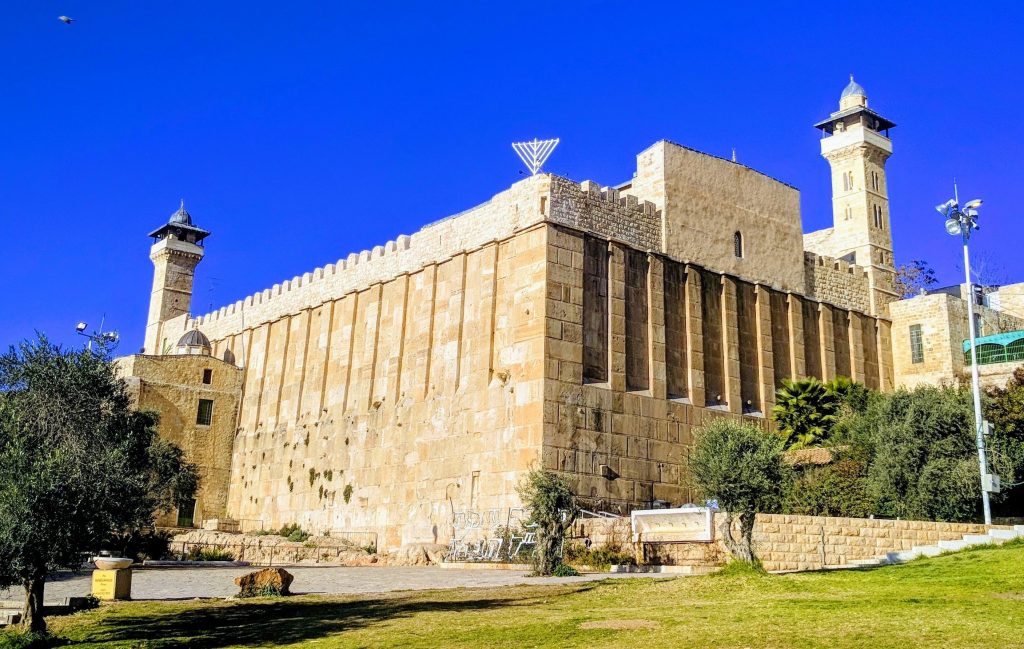
In Hebron, the Makhpela Cave is a significant entry in the roster of holy places in Israel. This complex holds sacred resonance as the burial site of revered biblical figures. The tombs of Abraham, Sarah, Isaac, Rebecca, Jacob, and Leah are nestled within its walls, lending an air of reverence to the site. Pilgrims and tourists alike are drawn to this ancient cave, connecting with the legacies of these figures and delving into the deep-rooted history that defines this pivotal location.
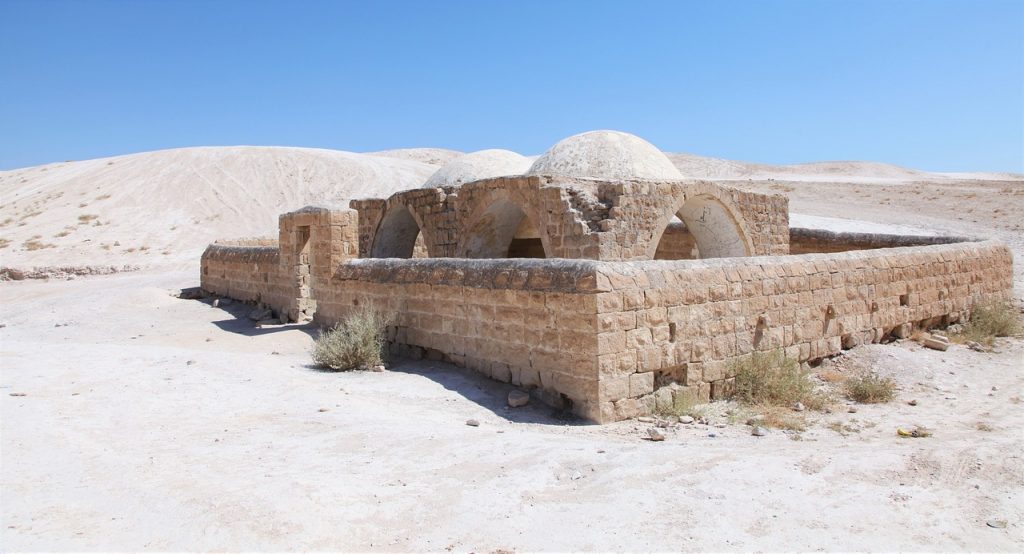
Nestled in the Judean Desert, Nabi Musa claims its spot among the sacred holy places in Israel. This revered site marks the tomb of the prophet Moses in Islamic tradition. For Muslims, it’s a place of veneration, honoring the legacy of Moses and his pivotal role in delivering divine messages. Pilgrims journey here to pay homage to this esteemed figure, forging a connection with a faith that spans generations. Nabi Musa stands as a beacon of Islamic heritage, resonating with spiritual importance that echoes across the desert landscape.
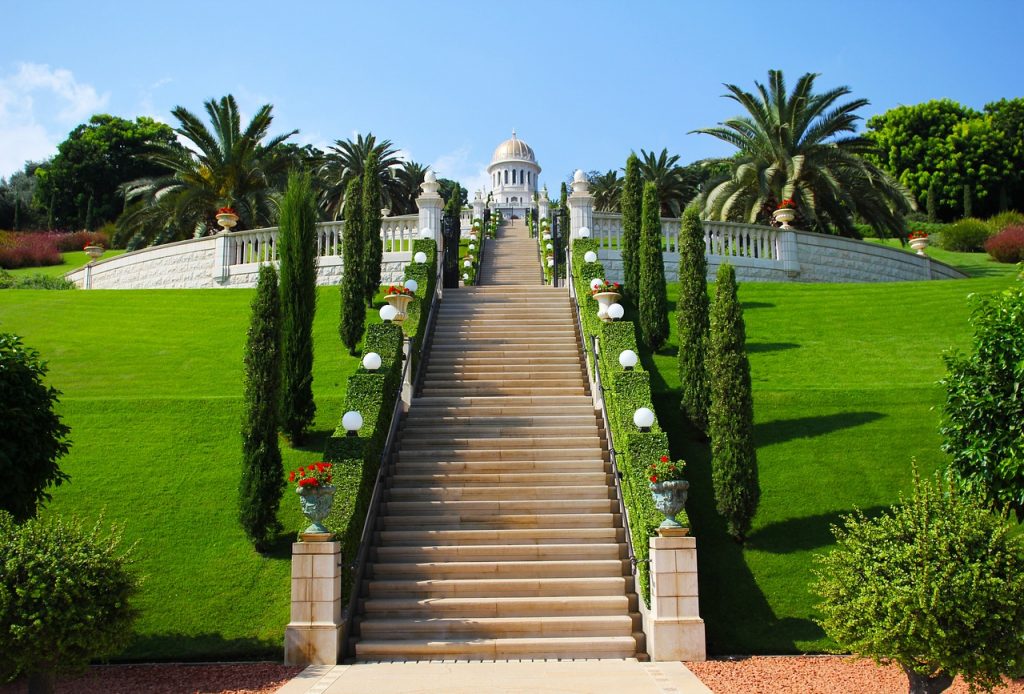
Amid the holy places in Israel, the Bahá’í Gardens and Shrine of the Báb in Haifa stand as a testament to the Bahá’í faith. This stunning site holds deep spiritual significance for Bahá’ís, honoring the founder’s teachings. The meticulously designed terraced gardens captivate visitors, reflecting the faith’s unity and harmony. The shrine itself is a place of reverence, embodying the faith’s principles. Tourists are treated to not just an architectural marvel but a symbol of devotion and peace that transcends borders.
Among the array of holy places in Israel, Qasr el Yahud stands as a remarkable baptismal site along the Jordan River. Here, the connection to both John the Baptist and Jesus is deeply rooted. John is believed to have baptized Jesus in these waters, marking a pivotal event in Christian tradition. For pilgrims, this site holds immense spiritual significance, drawing them to immerse themselves in these historical waters. Qasr el Yahud serves as a sacred intersection of faith and ritual, offering a unique opportunity to retrace a transformative moment in Christianity.
Found in Bethlehem among the revered holy places in Israel, the Church of the Nativity marks the very site of Jesus’ birth. This unassuming structure holds immense significance for Christians worldwide. It’s one of the oldest continuously operating churches globally, a testament to its enduring importance. Pilgrims and tourists alike flock to this sacred site, connecting with the humble origins of their faith. The Church of the Nativity stands as a beacon of history, offering a tangible link to the beginnings of Christianity and a space for reflection.
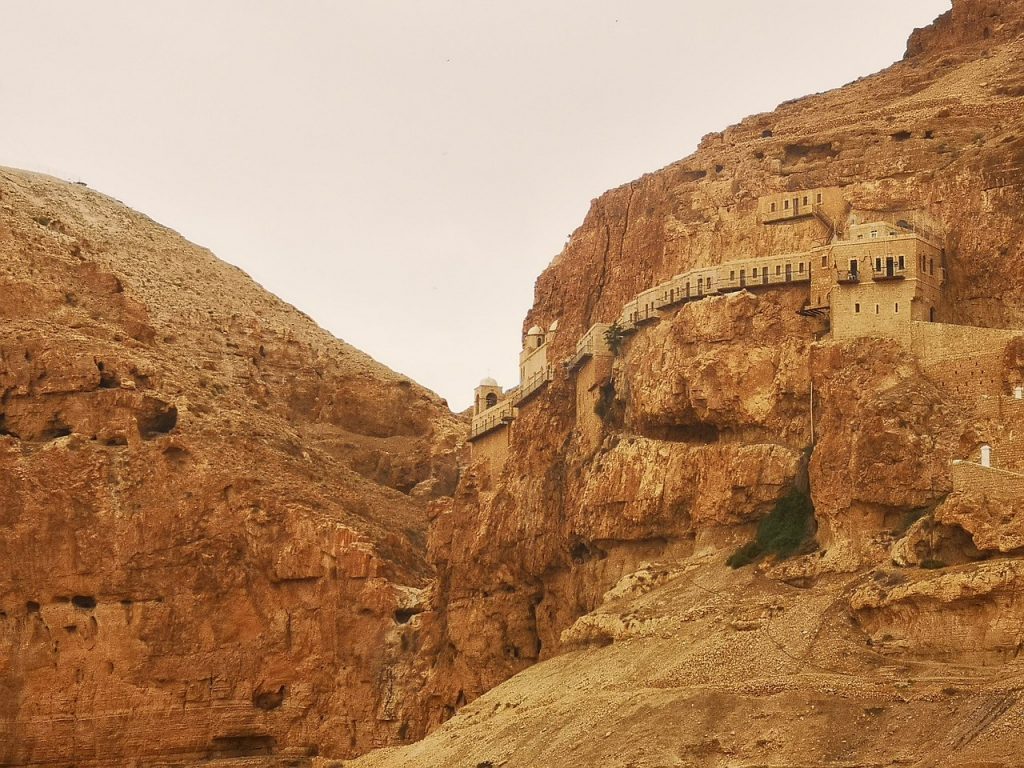
Carved into the cliffs of Wadi Qelt, the Monastery of Saint George is a distinguished entry among the holy places in Israel. This Greek Orthodox monastery holds deep spiritual significance, tracing its roots back through centuries of devotion. Its location in the rugged landscape is both symbolic and practical, offering a sanctuary for monks and pilgrims seeking solitude and connection with their faith. The Monastery of Saint George stands as a testament to unwavering devotion, inviting visitors to explore the intersection of spirituality and nature.
Nestled in Meron, among the sacred holy places in Israel, lies the Tomb of Rabbi Shimon bar Yochai, a revered site particularly significant during the Jewish Lag Ba’Omer holiday. This pilgrimage spot honors the memory of Rabbi Shimon bar Yochai, a revered sage in Jewish tradition. For Jewish people, this site is a tangible link to their heritage, drawing crowds who seek to pay homage to his legacy and connect with their spiritual roots. The Tomb of Rabbi Shimon bar Yochai stands as a testament to enduring faith and a rich cultural tapestry.


Israel, often called the birthplace of Christianity, is a land steeped in history, holding deep significance for believers. Christian pilgrimage sites abound in this small
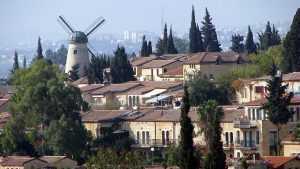
In the heart of the Middle East lies Jerusalem, a city steeped in history, culture, and religious significance. Positioned at the crossroads of civilizations, Jerusalem
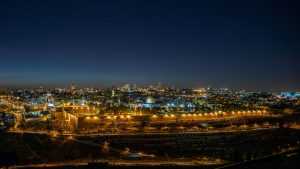
Jerusalem, a city that never sleeps, transforms into a captivating wonderland after dark. From exploring the enchanting Old City streets to indulging in local ice
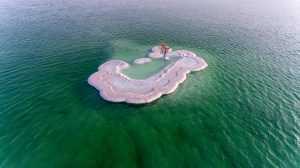
Welcome to a week-long adventure in Israel! Discover what to do in Israel for a week and immerse yourself in its rich history and diverse
